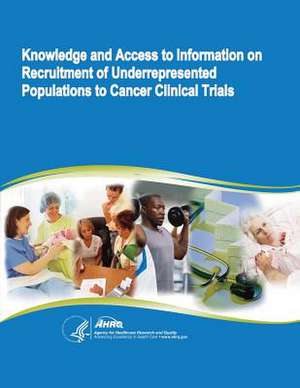Knowledge and Access to Information on Recruitment of Underrepresented Populations to Cancer Clinical Trials
Autor U. S. Department of Heal Human Services, Agency for Healthcare Resea And Qualityen Limba Engleză Paperback
Preț: 160.00 lei
Preț vechi: 168.42 lei
-5% Nou
Puncte Express: 240
Preț estimativ în valută:
30.62€ • 32.74$ • 25.53£
30.62€ • 32.74$ • 25.53£
Carte disponibilă
Livrare economică 27 martie-10 aprilie
Preluare comenzi: 021 569.72.76
Specificații
ISBN-13: 9781499672282
ISBN-10: 1499672284
Pagini: 244
Dimensiuni: 216 x 279 x 13 mm
Greutate: 0.58 kg
Editura: CREATESPACE
ISBN-10: 1499672284
Pagini: 244
Dimensiuni: 216 x 279 x 13 mm
Greutate: 0.58 kg
Editura: CREATESPACE
